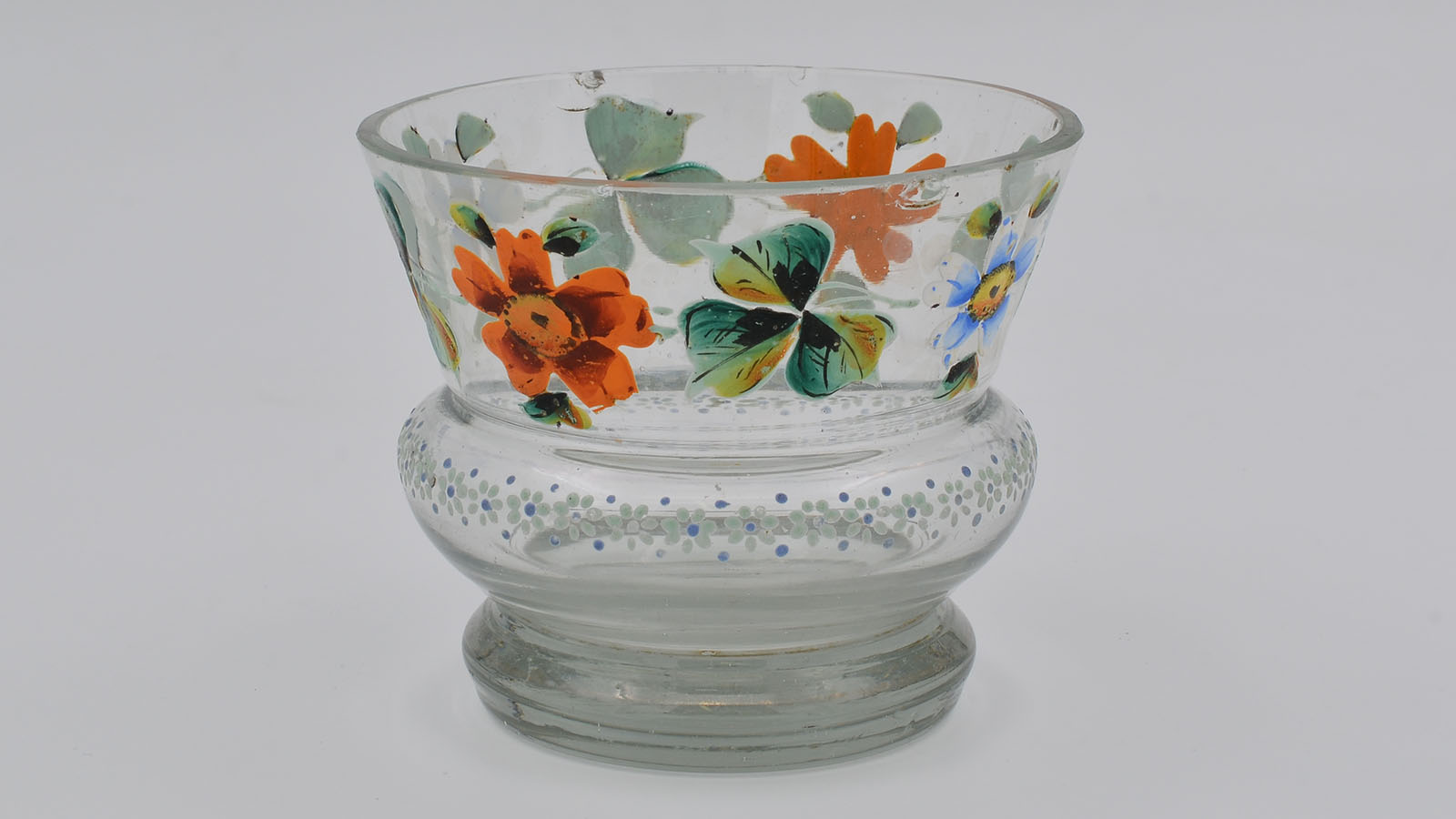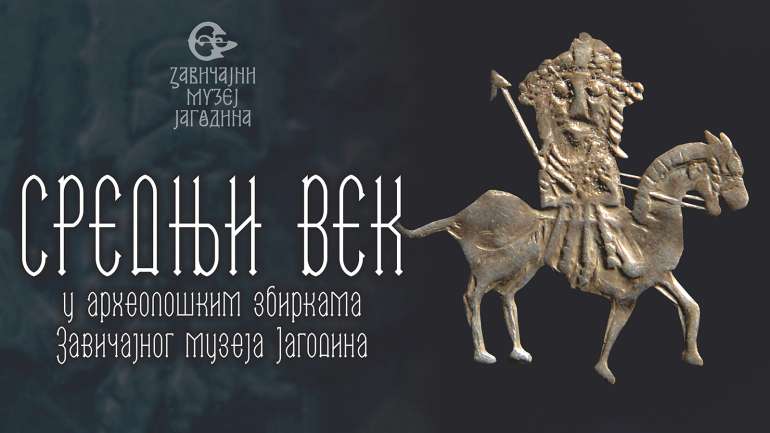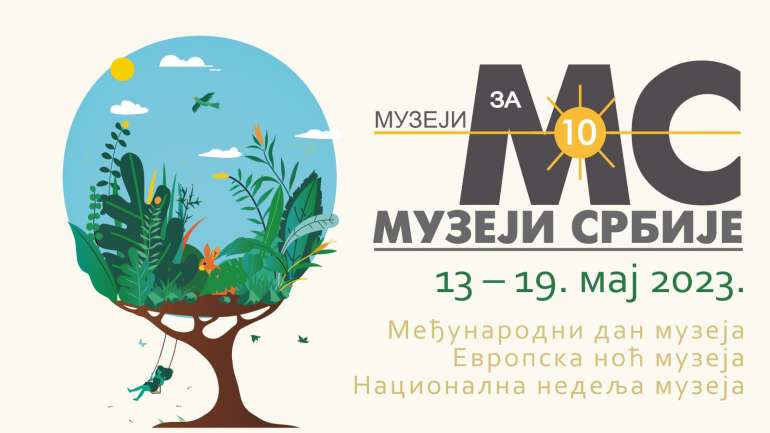At the end of 2020, the Museum’s Collection of Glass was enriched with a significant item produced at the end of the 19th or at the very beginning of the 20th century in the Glass Factory of Nacko Janković in Jagodina. It is a glass that was donated to the Regional Museum of Jagodina by Ljubodrag Paunović from Jagodina, whose grandfather, Sava Stojanović, was a glass worker at this factory.
The 8 cm high cup rests on a round pillow-shaped foot 6.5 cm in diameter, which is followed by a belly extension decorated with a frieze of white flowers with purple petioles made of dots. The cup ends with a funnel-shaped extension 9.3 cm in diameter, on which white-blue and orange flowers alternate, separated by a green trefoil. The glass is made of transparent glass 2 mm thick, and the decoration is done by hand, with enamel paints.
During the 19th century, Jagodina was an important industrial center of Serbia in the production of glass. Here, in 1846, the first glass factory was opened. This was also the first factory in Serbia, and its opening marked the beginning of industrial production in our country. Its founder was Avram Petronijević (1791-1852), a prominent figure in Serbian history of the 19th century. This factory persisted until 1852. After Petronijević’s death, the production of glass was taken over by Julije Bozitovac and his partners. The merchant from Jagodina, Nacko Jankovic, bought the factory from Bozitovac at the beginning of the ninth decade of the 19th century. This glass factory operated until 1907 when it was closed. In the same year, the Serbian Glass Factory in Paraćin was founded.
The glass that reached the Museum’s collection is well preserved and is important as a representative of the stylistic characteristics of Nacko Janković’s Glass Factory products.





